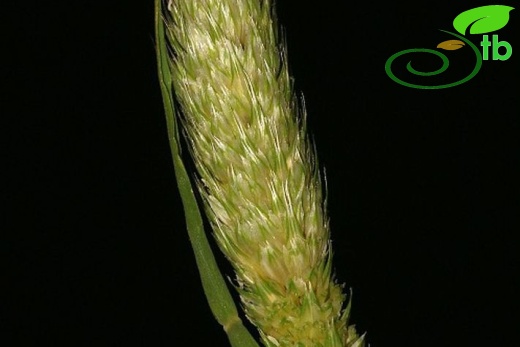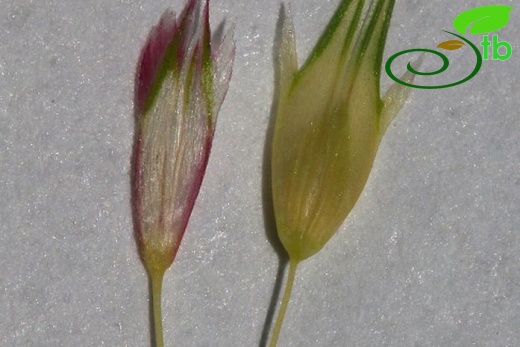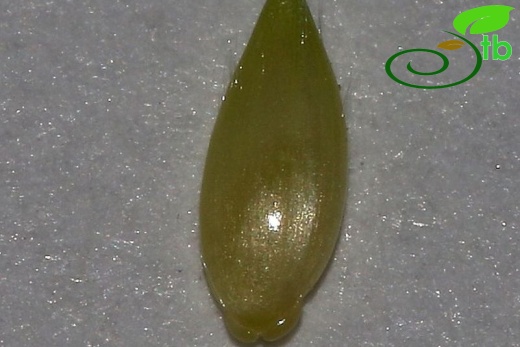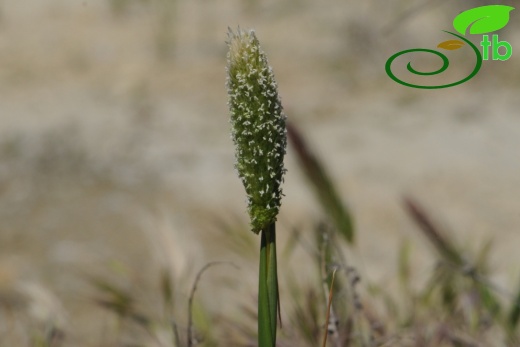Phalaris paradoxa
Phalaris paradoxa
Topuzlu kanyaş
Annual. Stems 20-100 cm, Upper leaf sheath inflated, enclosing base of panicle; ligule 2-8 mm. Leaf blades 2-9 mm broad. Panicle dense, oblong-cylindrical, tapering to base, 4-10 x 1.5-2.5 cm, Spikelets falling in clusters of 6-7, all pedicellate, one fertile, the remainder sterile, basal clusters often deformed. Fertile spikelets: glumes 7-8 mm, attenuate into a 2-3 mm awn-like prolongation, wing tooth-like; sterile lemmas obsolete, each represented by one or a few hairs; fertile lemma 3 mm, glabrous or with some silky hairs near apex. Sterile spikelets: glumes 4-6 mm, acute, wing irregularly denticulate; sterile lemmas each represented by one or a few hairs; lemma and palea membranous, 2 mm. Basal clusters very variable in number, from being totally absent to occupying greater part of panicle, with reduced, indurated spikelets; fertile spikelet sessile, 5 mm, glumes shortly tapering; sterile spikelets reduced, 1-2 mm, glumes with crest-like wings. Anthers 1-1.8 mm. Caryopsis 2.5 mm. 2n = 14. Fl. 4-7. Waste places, uncultivated land, roadsides, s.l.-700 m.
Mediterranean area, S.W. Asia. Medit. element.











